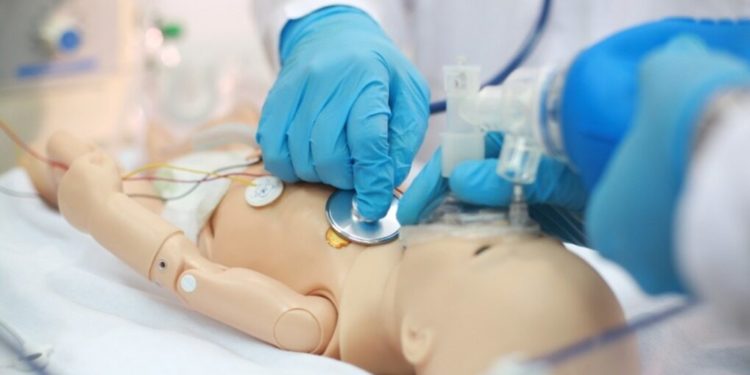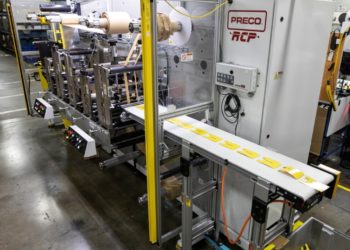In pediatric hospitals, trained providers can help raise cardiac arrest survival rates to about 38%, according to research published at the National Library of Medicine. That’s a big difference compared to survival rates outside the hospital. This shows how much proper training matters, especially in pediatric care settings like the Pediatric Intensive Care Unit (PICU).
As a PICU nurse, you’re often in critical situations where every second matters. Many patients are too young or too weak to explain what’s wrong. In these moments, your training matters as much as your instincts. You can’t rely on guesswork.
That’s why Pediatric Advanced Life Support (PALS) certification is so important. PALS gives you clear steps to follow and proven tools to help you manage emergencies with more confidence. So why does PALS matter so much for PICU nurses? Let’s explore.
What is Pediatric Advanced Life Support Certification?
PALS certification is an advanced resuscitation course. The main goal of this certification is to make healthcare providers feel empowered to take charge in pediatric emergencies with the confidence that they can handle anything that comes their way. It will prepare you to quickly recognize and provide care for respiratory distress, cardiac arrest, and shock.
You will gain skills in high-quality CPR, parental methods of resuscitation, and teaming for collaborative resuscitation. The PALS course is also updated with the latest best practices for providing pediatric emergency care. Plus, since guidelines change, you’ll need to renew your certification every two years to stay up to date and keep your skills sharp.
Why is PALS Certification Essential for PICU Nurses?
PALS certification isn’t just a credential to add to your resume; it’s a critical component of providing excellent care in the PICU environment. Here’s why it’s essential:
- Specialized Knowledge of Pediatric Emergencies: Children aren’t like adults; their bodies respond differently. You need specific training to understand the unique aspects of pediatric emergency care. With PALS certification, you will get in-depth knowledge of pediatric physiology, pharmacology, and resuscitation techniques.
- Confidence and Competence: When a child’s condition worsens, you need to take action without hesitation. Pediatric Advanced Life Support Certification training builds your confidence and competence in managing pediatric emergencies. You will feel more prepared to handle high-pressure situations, make quick decisions, and work effectively as part of a resuscitation team.
- Standardized Approach: Being certified in PALS promotes a standardized approach to pediatric resuscitation, ensuring that all healthcare providers follow the same guidelines and protocols. This consistency improves communication, coordination, and efficiency during critical events.
- Current Evidence-Based Practices: Pediatric resuscitation guidelines evolve based on new research. Your PALS certification ensures you’re implementing the most up-to-date, evidence-based approaches to pediatric emergency care.
- Regulatory Compliance: Many hospitals and healthcare facilities require PALS certification for PICU nurses to meet accreditation standards and ensure quality patient care. Maintaining your certification helps you meet these professional requirements.
Benefits of Pediatric Advanced Life Support Certification
Becoming PALS certified offers numerous advantages that directly impact your practice and patient outcomes:
- Better Decision-Making in Emergencies: PALS training teaches you how to assess, prioritize, and take action in pediatric emergencies promptly. You’ll follow a structured approach that helps you spot serious issues fast and respond effectively.
- Stronger Team Communication: Emergencies can be chaotic, but PALS gives you the skills to communicate clearly and efficiently. You’ll learn how to work smoothly with your team so everyone knows their role and can act swiftly and cohesively.
- Fewer Mistakes in High-Stress Situations: PALS training is all about following proven guidelines, reducing errors, and making sure patients get the right treatment at the right time. You’ll feel more confident knowing you’re doing things by the book.
- Feel More Confident in Your Skills: There’s nothing better than knowing you’re fully prepared to handle pediatric emergencies. PALS training gives you the peace of mind that you’re giving young patients the best care possible.
- Career Advancement Opportunities: Certified nurses are often preferred for PICUs, pediatric emergency departments, and neonatal ICU positions. This credential can also pave the way for further certifications like Pediatric CCRN.
- Lifelong Learning and Skill Retention: Regular recertification keeps your knowledge up-to-date with evolving guidelines and techniques. It ensures that you retain essential skills needed for pediatric emergencies, maintaining your readiness to save lives.
How Does PALS Certification Impact Patient Care?
The value of Pediatric Advanced Life Support Certification becomes most apparent in its direct impact on patient outcomes:
- Improved Survival Rates: Research has shown that PALS-trained providers achieve better survival rates for pediatric patients experiencing cardiac arrest. Your certification directly contributes to saving young lives.
- Faster Recognition of Deteriorating Patients: PALS training enhances your ability to identify subtle signs of deterioration before a full arrest occurs. You’ll learn to spot the warning signs that precede respiratory failure and shock, allowing for earlier intervention.
- More Effective Resuscitation: PALS-certified nurses perform higher-quality CPR with appropriate depth, rate, and minimal interruptions. Your training ensures you deliver the most effective life-saving measures during critical moments.
- Reduced Neurological Complications: Proper resuscitation techniques learned through PALS certification help minimize the risk of neurological damage during and after cardiac arrest. Your skilled interventions protect your patients’ long-term quality of life.
- Enhanced Post-Resuscitation Care: Pediatric Advanced Life Support Certification covers not just the emergency response but also the critical post-arrest period. You’ll learn to optimize care after the return of spontaneous circulation, which significantly affects long-term outcomes.
Obtaining PALS Certification for PICU Nurses
Ready to get your PALS Certification or renew an existing one? Here’s what you need to know:
- Course Options: The American Heart Association offers several formats for PALS certification, including classroom-based courses, blended learning with online components, and updated courses for renewal. You can choose the option that best fits your learning style and schedule.
- Preparation Requirements: Before attending the course, you’ll need to complete pre-course self-assessment tests and review materials. This preparation ensures you’re ready to make the most of the in-person training components.
- Course Content: The certification process covers the recognition and management of respiratory emergencies, shock, dysrhythmias, and cardiac arrest in pediatric patients. You’ll practice these skills through simulations and scenario-based learning.
- Testing and Certification: To earn your Pediatric Advanced Life Support Certification, you must pass both written and practical skills tests. The certification is valid for two years, after which you’ll need to take a renewal course to stay current.
- Ongoing Skill Maintenance: PALS skills can deteriorate over time without practice. Many hospitals offer regular mock codes and simulation sessions to help you maintain your proficiency between certification periods.
How PALS Strengthens PICU Nursing Practice
If you work in a Pediatric Intensive Care Unit (PICU), you deal with high-stress situations every day. You must make swift decisions and deliver advanced emergency care. The Pediatric Advanced Life Support (PALS) gives you the knowledge and hands-on skills to handle serious pediatric emergencies and help improve patient outcomes.
PALS training uses real-life simulations and proven medical protocols. It helps you build the confidence and ability to respond fast and effectively when a child’s life is at risk. Many hospitals require PALS certification for PICU positions. Even if it is not a requirement for the position, your career may get a boost from the credential, as it signifies that you are ready to deliver complex pediatric care.











































































